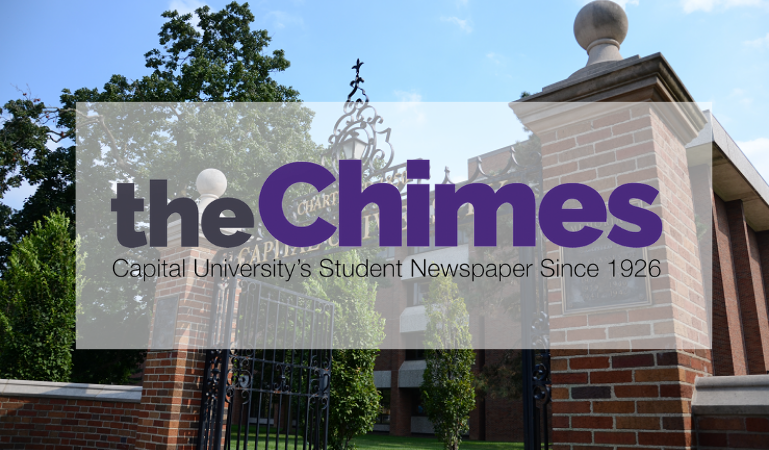Rev. Drew Tucker
dtucker@capital.edu
Recently, I shared with the Embrace group an invitation to Eucharist. One splendidly wise soul immediately sent me a private message that suggested, “What is eucharist should be your next Theology for Everybody column.” Well played, friend. Well played.
Eucharist is an English rendering of the Greek word for “thanksgiving.” When Christians talk about celebrating the Eucharist or going to Eucharist, what they mean is that they’re attending a worship event where they will participate in a ritual meal that commemorates Jesus’ Last Supper. In fact, some Christians refer to this ceremonial meal as The Lord’s Supper. Another common word for it is Communion.
Specifically, this meal includes bread and wine. Since it’s likely Jesus began this ritual during the Jewish Passover Festival, many Christians use unleavened (that is, made without yeast and therefore flat, which calls upon the Hebrew tradition of eating unleavened bread during the Passover), though many others use leavened loaves.
While wine is common in the original practice of Jesus, many Christians prefer grape juice as an option, either as an act of hospitality for folks living with addictions or as a theological statement about the (im)propriety of alcohol. Some folks drink from one cup, while others drink from individual cups. Some eat the bread by itself, while others dip the bread into the wine. In other words, that tiny little snack time in the middle of worship when you went to church with your grandma during spring break? That was likely the Eucharist.
A related question, and an important one, is why there are so many different names for the same event. The Lord’s Supper, which incidentally may be the only time you ever use the word “supper,” recalls who is the host of the meal: Jesus, Lord of the church. This phrasing is fairly common throughout church traditions, though you’re more likely to hear it as the primary name in evangelical communities like Baptists, Brethren, and Pentecostals.
Eucharist draws on the language that 1 Corinthians 11, where the author says Jesus shared the simple meal of bread and wine with his disciples after “he had given thanks.” This is the most ancient name for the tradition, coming from some of early church texts like the Didache, as well as from authors like Justin Martyr and Ignatius of Antioch.
Eucharist is the name frequently used by the Episcopalian, Lutheran, Roman Catholic, and Orthodox traditions and makes a further theological statement: this is a meal where we give thanks to God for we remember what God did for us in Jesus.
Though I most frequently say Eucharist, communion is my favorite image. From my Lutheran tradition, the name communion reminds us that, in this meal, we interact with God and with the whole church. Not just the memory of God, but that Jesus becomes mysteriously present in the meal.
That’s what the language of “this is my body” and “this is my blood” is all about. Rather than a DNA change in the elements, the bread remains bread and the wine remains wine. Yet, because God’s Holy Spirit enlivens these elements, they’re now for us the full presence of God.
More than that, because the Holy Spirit connect us to the rest of the church, all the folks who have ever practiced the Lord’s Supper in the past become present at the communion table.
Even more mind-blowing, all the people who will ever participate in Eucharist become present as well. It’s an event beyond time because, in this simple meal of normal bread and normal wine, we commune with God and with the entire church, all at once.
It’s mysterious. It’s inexplicable. And it is oh-so beautiful.
So, at a base level, when someone says Eucharist, or Communion, or The Lord’s Supper, they’re talking about that mini-meal within worship. But these words, and the traditions, are jam packed with meaning, full of substance and significance. St. Ignatius even calls it the “medicine of immortality” because it is a taste of eternity in the here and now.
Inexplicable mystery and beauty. That’s the Eucharist to me.

